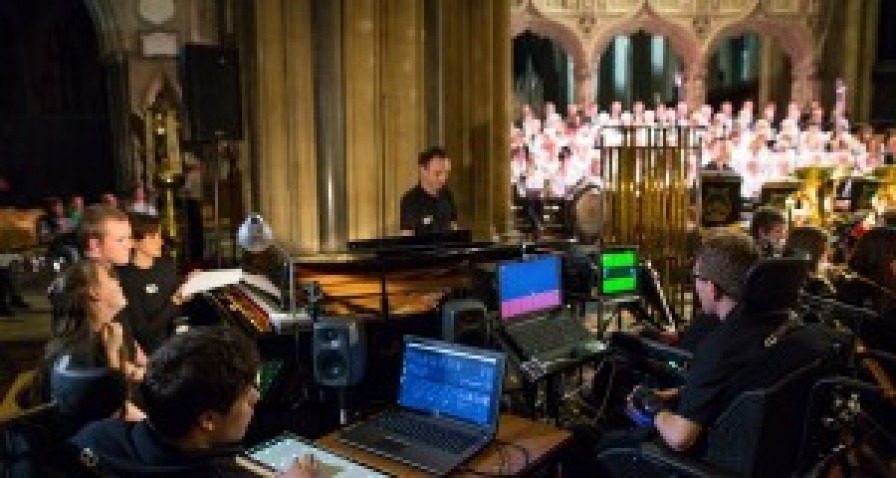News from Fast Forward 2017: Breaking the Glass Ceiling

Last Friday the Fast Forward 2017: Breaking the Glass Ceiling conference (hosted by Bristol Plays Music) was a landmark moment and a potential game-changer for music and disability. In this article we share news from a day that was packed full of important messages and notable progress.
At the core of the event were two beliefs:
- Aspirations and expectations should never be lower because of disability – disabled or differently abled people are as capable as anyone else of being virtuosic and highly skilled musicians
- That without an inclusive and accessible music industry, we’ll never have inclusive music education. The dots need to be joined between education and industry
The Fast Forward programme notes brilliantly set the scene:
“Since the National Plan for Music Education was written, new technologies and innovative practice have contributed to a significant improvement in opportunities for young musicians with special educational needs and/or disabilities (SEN/D) to take part in meaningful music making. Where previously the focus was on participation, now young people with profound and multiple disabilities are able to perform music alongside their peers in professional venues and on national television and radio.
The rise in prominence of high profile artists such as the members of the British Paraorchestra has demonstrated that musicians with SEN/D can and should aspire to more than just ‘joining in.’ The music education sector and the music industry are waking up to the fact that young disabled musicians are not only capable of virtuosity, but that they represent the catalyst for a whole new phase of evolution in the commercial arts.”
Despite this positivity, there is no shying away from shocking statistics that demonstrate there is a long way to go. Bristol Play Music’s Siggy Patchitt stated that at the last count 19% of the working age population was disabled but within Arts Council England’s National Portfolio Organisations only 4% of the workforce identified as disabled. Suzanne Bull, CEO of Attitude is Everything, went on to make clear that whilst there has been improvement in access for audiences (that said 2 out of 3 disabled audience members still can’t find the access information they need online), there has been little development in artist accessibility and artists are frustrated with playing ghettoised ‘disabled gigs’. Musicians Lloyd Coleman, James Rose Charlotte White and Kris Halpin shared their journeys into the music profession. It was striking to note that without sheer determination and perseverance against some challenging barriers, and without dedicated individuals supporting their journey, they may not have made it into the career they are in – this can’t be the case if accessibility is to become the norm.
As ever conversations must lead to action, and a highlight of the day was learning from what people are doing to ensure change is real. Examples included:
- Attitude is Everything have received a 20% uplift Arts Council England funding to deliver a disabled Artist Development Programme
- Bournemouth Symphony Orchestra are in the early stages of an ambitious Change Makers programme working, which you can read more about here
- Colston Hall (the home of Bristol Plays Music) is soon to undergo major redevelopment, with accessibility at its heart
The big star of the day though was the launch of the National Open Youth Orchestra (NOYO), which builds upon the success of the South West Open Youth Orchestra and will be the country’s first disabled-led youth ensemble. Over the past year we have created the NOYO Feasibility Study having been commissioned to do so by OpenUp Music, and there’s no doubt in our mind that NOYO will be a powerful catalyst for change in music education and industry.
Watch this space for the publication of the Feasibility Study and its recommendations later this term.
